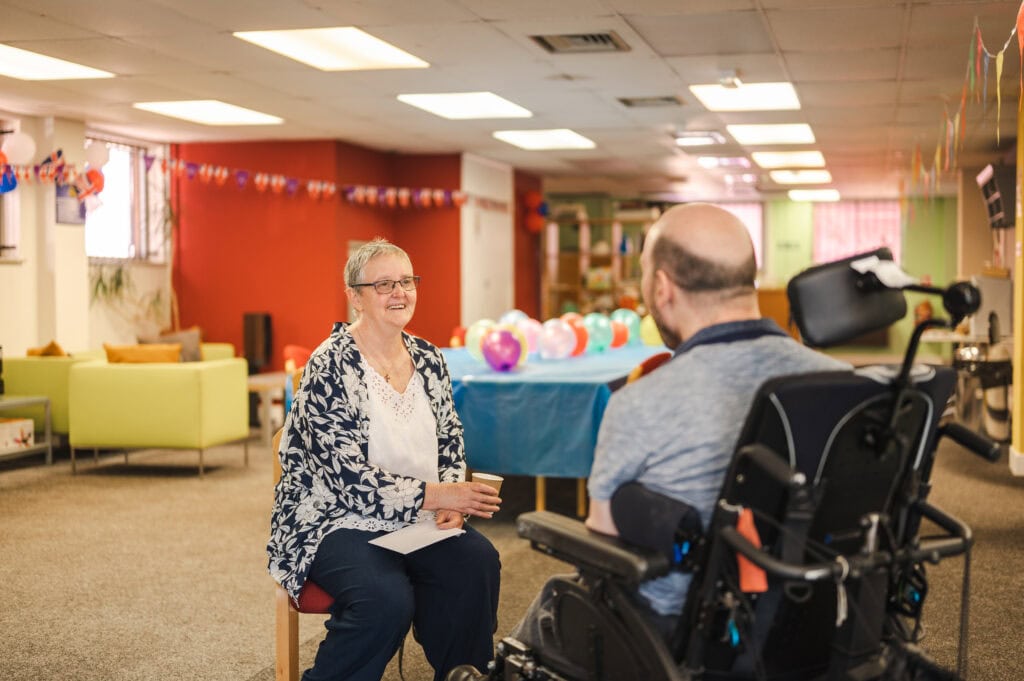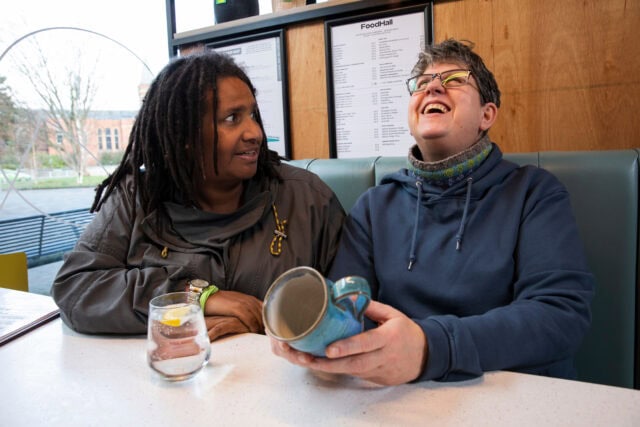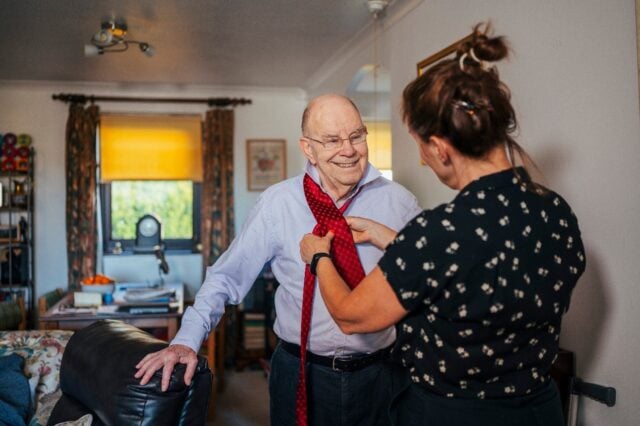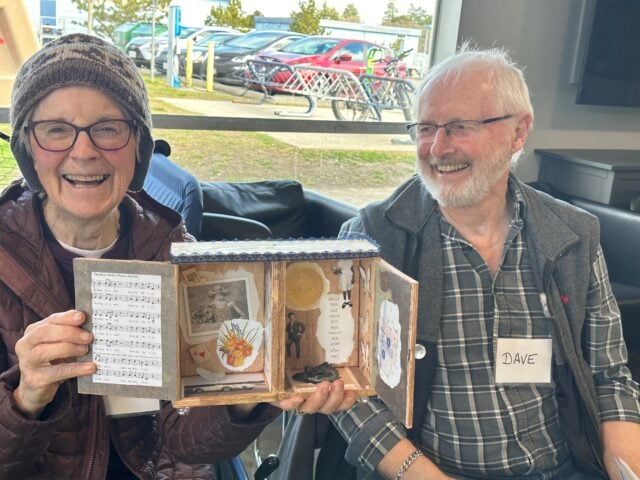By Prachi Gandhi

My name is Prachi Gandhi. I am a Community Support Worker with Behavioural Supports Ontario. I work for older adults living with dementia, cognitive impairment, mental illness, substance use, and/or other neurocognitive disorders. In my role, I collaborate with families and staff serving older adults with such challenges to manage any personal expressions and support them to continue living a dignified life in the community.
Caring for people with dementia and other neurocognitive disorders can be extremely challenging for both the person living with dementia and the people providing care for them. When working with older adults who have experienced changes in brain functioning, memory, and perception, it is important to understand their reality, validate their experience and think about the causes behind any personal expressions. Creating a dementia-friendly environment is key. I found the following tools for care partners and health professionals helpful to learn more about dementia related personal expressions and how to manage them.
P.I.E.C.E.S. (Physical, Intellectual, Emotional, Capabilities, Environmental, and Social)
P.I.E.C.E.S. is a great assessment tool to understand possible causes behind any personal expressions experienced by people living with dementia. An unmet need, confusion, frustration, or feeling lost can be overwhelming enough for personal expressions to arise. The three question template in P.I.E.C.E.S. helps clinical workers create a thorough care plan- What has changed? What are the risks and possible causes? What is the action?
Brainxchange
https://brainxchange.ca/Public/Resource-Centre-Topics-A-to-Z/Person-and-Family-Centred-Care
Brainxchange has several wonderful education resources on person and family centred care. It is important to remember that each person with dementia is different and has a unique set of skills, interests and needs. Oftentimes, due to caregiving burnout or lack of education, it can be easy to forget that the person comes first before their disease. Thus, using a person-centered approach and involving them in their care is key. It is important to look at the person as a whole by focusing on their strengths, capabilities, goals, and needs rather than potential limitations. An example of using a person centred approach could include staff in the community collaborating with the person with dementia, substitute decision maker, and/or primary care partner in creating goals for the client attending an adult day program.
BSO DOS (Dementia Observation System) tracker
https://brainxchange.ca/BSODOS
BSO DOS (Dementia Observation System) tracker is a tool which helps collect behaviour-based data throughout a 24 hour cycle over several days. As someone serving individuals with high personal expressions, sometimes it can be challenging to identify triggers that may be emerging due to numerous factors. This tool can help you understand the behaviour, its context, frequency, and identify any patterns for personal expressions. An evaluation from the tracking tool can be used to address an unmet need or perhaps any triggers in the environment.
Communication cue cards
https://www.easternhealth.org.au/patients-and-visitors/language-services/cue-cards-in-community-languages/ ; https://www.healthtranslations.vic.gov.au/resources/communication-cards
Living in a culturally diverse country like Canada, English may not be a primary language for many seniors. Health care staff often serve individuals that may be bilingual or even multilingual. With changes in brain functioning due to dementia, oftentimes, people revert back to their primary spoken language. This can cause communication challenges for staff if they don’t speak the native language of the clients they care for. In my experience, using translation cue cards like the ones provided by the Centre for Cultural Diversity in Ageing and Eastern Health as well as tools such as google translate and Duolingo can help address communication challenges. Learning basic everyday words in other languages along with the use of audio-visual aids have proven to be a big savior.
It’s important to remember that all behaviour has meaning. When nothing seems to be working, shift your focus towards the possible causes and how to best address them.
– – –

This article was contributed by Prachi Gandhi, BSc. SSW Gerontology who is a Community Support Worker with Behavioural Supports Ontario (BSO), Alzheimer Society Peel.
Would you like to curate a resource list for the Behaviours in Dementia Toolkit? Reach out to CCSMH knowledge broker Nick Ubels at [email protected]





